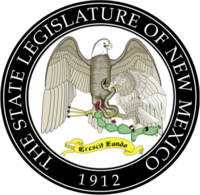By: Sharna Johnson
Perhaps it’s denial, misinformation or a lack of information altogether, but nearly half of college students are under the impression their student loans will be forgiven.
February was Financial Aid Awareness Month, and it appears that awareness is desperately needed if a recent study is any indication.
Created by congress in 2010, the campaign’s goal is to raise awareness about federal financial aid options and particularly the ways federal financial aid can reduce the amount of student loans necessary to obtain a college education.
Recent data from a study conducted by LendEdu, however, shows that students may be operating under false ideas when it comes to how they will repay their loans, and in fact think they won’t have to pay them back at all.
LendEdu, a private company which acts as a marketplace for student lending options and refinance, in keeping with the theme of Financial Aid Awareness Month, asked 500 college students a series of questions to gauge their knowledge and understanding of financial aid and student loans. The survey results were released February 15.
When asked, “Do you believe that you will be helped by federal student loan forgiveness programs after graduation?” a startling 49.8 percent replied “yes”.
False belief loan forgiveness will help with loan repayment is one of the most concerning aspects of the results, a LendEdu study analysis stated, because students may be over-borrowing based on hope their loans will be forgiven in the future when the reality is that only a small percentage of college graduates qualify for Public Service Loan Forgiveness.
In general terms, in a student loan forgiveness program (they exist on the state and federal levels) a graduate’s debt is reduced in exchange for long-term employment in the public sector or in a low-income or high-need area.
Often these programs are also tied to specific professions such as healthcare, education, legal or STEM fields.
Not only does a student have to get hired for a position that qualifies for forgiveness programs, they also must meet other requirements, and fulfil a set employment period – ranging from a couple years to a decade on the job, often during which time regular loan payments must still be made by the borrower – to receive debt forgiveness.
LendEdu pointed out that a further 64 percent believe it is possible to refinance student loan debt with the federal government, however this is incorrect because there is no such animal.
Since federal refinancing programs don’t exist, college students, again, have false expectations of how they will repay their debts in the future.
Apparently, ignorance about loan forgiveness and refinancing aren’t the only problems when it comes to how much students don’t know about funding their college education.
Seven years after its inception, Financial Aid Awareness Month clearly still has a long way to go to reach its goal if some of the other study results are any indication:
- 16 percent believe you need to pay money to file a FAFSA
- 10 percent have never heard of FAFSA
- 78 percent did not know what FAFSA stands for
- 84 percent did not know when the 2017-2018 FAFSA deadline is
- 80 percent could not identify the 2016-2017 maximum Pell Grant award amount
- 80 percent could not identify current federal student loan interest rates
- 79 percent did not know the current repayment term is 10 years
- 74 percent did not know the current borrowing limits for federal student loans
“There is no doubt that getting a degree is helpful and may reap huge benefits. However, it concerns us here at LendEDU that students do not understand how they are funding their education,” LendEdu stated in conjunction with the release of the study.
The average student graduates with $28,400 in student debt, according to LendEdu.
“Add in the fact that students know very little about how to handle that debt, and that number becomes even more intimidating.”
The current study is not the only time LendEdu has uncovered deficiencies in understanding about financial aid.
In 2016, a study found 85 percent of students rely on their parents for financial aid and loan information, however parents – 47.65 of whom believed their children will be helped by federal student loan forgiveness programs – apparently don’t understand much better than they do. With an endless amount of student loan information available to students and parents, a reasonable excuse for the lack of understanding is hard to come by, and more importantly, won’t matter when the loans come due.
Parents should educate themselves on financial aid and student loans so they can assist their children, however ultimately it is the student who will be responsible for repayment and needs to understand.
One of the most simple and accessible sources of knowledge is already required of students when they draw federal loans for school – mandatory entrance and exit counseling which includes personalized information to help students put their debts in perspective. Additional information designed to help students and parents navigate career choices, college funding and plan for managing loans after school can be found online at: Federal Student Aid
It’s never too early to gain an understanding of future debts, though waiting until the bill comes due is most certainly too late.



